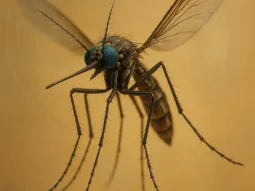
When it comes to safeguarding our health, understanding the warning signs and prevention methods of the Zika virus is crucial. This mosquito-borne illness has made headlines for its rapid spread and serious health implications, especially for pregnant women. By recognizing the symptoms early and taking proactive measures, we can significantly reduce the risk of infection.
In this article, I'll delve into the key warning signs of the Zika virus and share practical prevention tips. Whether you're planning a tropical vacation or want to stay informed, knowing how to protect yourself and your loved ones is essential. Let's explore how we can stay one step ahead of this formidable virus.
Understanding Zika Virus
Zika virus presents significant health risks, making it essential to know its characteristics and transmission methods.
Overview of the Disease
Zika virus causes fever, rash, joint pain, and conjunctivitis. Symptoms usually last several days to a week. Severe cases are rare but can lead to neurological complications like Guillain-Barré syndrome. No specific treatments are available; management focuses on relieving symptoms. Early recognition is crucial to prevent complications.
How Zika Virus Spreads
Mosquito bites from Aedes species transmit Zika virus. These mosquitoes are active during the day and breed in stagnant water. Transmission can also occur through blood transfusions and sexual contact. Pregnant women risk passing the virus to their unborn children, causing birth defects like microcephaly. Reducing mosquito exposure and practicing safe sex are key preventive measures.
Recognizing the Signs of Zika Virus
Identifying the Zika virus early helps mitigate its effects. Specific symptoms aid in recognizing the virus's presence.
Common Symptoms
Common symptoms of the Zika virus appear within 2-7 days after exposure. These include fever, rash, joint pain, and conjunctivitis. Some people experience muscle pain and headaches. Symptoms generally last for a few days to a week. For example, most individuals recover fully, but complications can occur.
Warning Signs in Pregnant Women
The Zika virus poses significant risks to pregnant women. Warning signs include the common symptoms cited above, but pregnant women need to be extra vigilant. Microcephaly and other severe fetal brain defects can occur if the virus infects the unborn child. Other indicators may include a sudden onset of mild fever, rash, or red eyes. Pregnant women experiencing these signs should seek medical attention immediately to ensure proper care and diagnosis.
Preventing Zika Virus Infection
Mitigating the risk of Zika virus infection involves multiple strategies. Primary focus areas include avoiding mosquito bites and practicing safe sexual behaviors.
Strategies to Avoid Mosquito Bites
Using Insect Repellents: Apply EPA-registered insect repellents. Ingredients like DEET, picaridin, and oil of lemon eucalyptus offer effective protection.
Wearing Protective Clothing: Wear long sleeves, long pants, and socks to minimize skin exposure. Clothing treated with permethrin provides extra defense.
Implementing Mosquito Control at Home: Install window and door screens. Use air conditioning to deter mosquitoes indoors.
Removing Standing Water: Eliminate standing water in containers like buckets, flower pots, and birdbaths to prevent mosquito breeding.
Complications Associated with Zika Virus
In certain cases, the Zika virus causes severe health complications. These issues vary in nature and severity, with particular concern for specific groups such as pregnant women.
Long-term Effects
Long-term effects of Zika infection range from neurological issues to autoimmune disorders. Guillain-Barré Syndrome, a condition where the immune system attacks the nerves, develops post-infection in some cases. Symptoms include muscle weakness and paralysis, lasting weeks or months. Additionally, persistent headaches, memory problems, and mood disorders may affect those who recovered from Zika.
Zika Virus and Pregnancy
Zika virus poses significant risks during pregnancy. The primary concern is microcephaly, a condition where babies are born with smaller, underdeveloped brains. This birth defect leads to severe neurological impairments and developmental delays. Instances of congenital Zika syndrome feature symptoms like brain abnormalities, eye defects, and restricted limb movement. Pregnancies impacted by Zika also face higher risks of miscarriage and preterm birth.
Understanding these complications underlines the importance of Zika prevention and early detection in vulnerable populations.
Conclusion
Recognizing the warning signs of the Zika virus and taking preventive measures can't be overstated especially for pregnant women. Early detection and immediate medical attention are key to mitigating the severe health risks associated with the virus. By reducing mosquito exposure and practicing safe sex we can significantly lower the chances of infection. Understanding the complications linked to Zika underscores the critical need for vigilance and proactive prevention. Stay informed and protect yourself and your loved ones from this serious threat.
To learn more about Romex Mosquito Solutions visit our Yard Guard page.
We hope you enjoy these informational articles. If you'd like to learn more about our eco-friendly pest control services, call (844) 955-2447.
Read More
Your Path to a Pest-Free Home or Business
Romex Pest Control
We are committed to protecting you, your children, and your pets with our eco-friendly, child-friendly, and pet-friendly guaranteed pest control solutions.
Romex Pest Control is fully insured and licensed in Texas, Oklahoma, Louisiana, and Mississippi.
Service Areas:
Hours
M-F 8 am–5 pm
Sat 8 am–2 pm
Sun Closed
Established 2016 © Copyright 2025 Romex Pest Control










